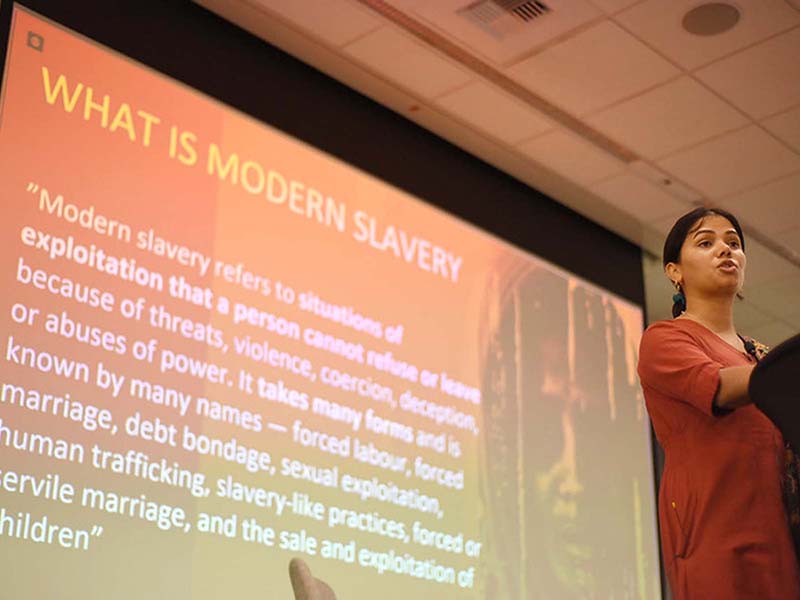
This week, Telia Company published the human rights impact assessments (HRIAs) undertaken by BSR of the company’s subsidiaries in Sweden and Lithuania. This follows the company’s earlier publication (in summary form) of similar HRIAs undertaken by BSR of the company’s subsidiaries in Azerbaijan, Georgia, Kazakhstan, Moldova, Tajikistan, and Uzbekistan.
Taken together, these publications by Telia Company represent an impressive commitment to transparency on human rights impacts and how they are addressed. This level of transparency remains rare in the business and human rights field, and we hope these steps by Telia Company are frequently cited as a leading example for other companies to follow.
These HRIAs represent a substantial body of work. Along the way, BSR and Telia Company gained many new insights into how to apply the UN Guiding Principles on Business and Human Rights, and we want to share four of them here:
- Stakeholder and rightsholder engagement is essential. To develop the eight HRIAs, BSR and Telia Company met with around 100 stakeholders and rightsholders, including human rights defenders, advocates, policymakers, diplomats, and regulators. Some were experts in telecoms, while others were not; some focused on the broad human rights agenda, while others specialized in specific areas, such as privacy, LGBTIQ+ rights, or gender equality. While companies can be hesitant to engage externally, with the right preparation, companies can gain valuable insights from these conversations and forge new relationships that are essential for the successful implementation of HRIA recommendations.
- Transparency by companies on human rights issues has impact. Over recent years, a number of internet and telecoms companies, including Telia Company, have become much more transparent in their approach to freedom of expression and privacy, especially when it comes to how they respond to government demands that risk violating the human rights of their users. These reports can be long and detailed, so it is tempting to assume they sit unread on a digital shelf. They are not—indeed, quite the opposite. In these Telia Company HRIAs, and in HRIAs BSR has undertaken with other internet and telecoms companies, it has been striking to learn how local human rights defenders and advocates have put them to use—for instance to inform their policy positions.
- An industry lens is required. The UN Guiding Principles on Business and Human Rights are written for all companies in all industries, so applying them to a specific telecoms company raises new questions that require industry knowledge. What is the responsibility of a telecoms company when compliance with local laws, regulations, and licenses can result in human rights violations? How can telecoms companies reconcile the huge freedom of expression benefits of their services with their accompanying risks? What unintended consequences does a telecoms regulatory change have in a country with strong rule of law (such as Sweden) when that same change is replicated in countries without the same legal protections? How will disruptive technologies, such as artificial intelligence and the internet of things, alter human rights risks? Industry organizations such as the Global Network Initiative can help explore what these questions mean for telecoms companies.
- The link between ethics and human rights is strong. While freedom from corruption is not a human right, it was clear throughout our assessments in all eight countries that there are strong links between ethics, corruption, and human rights. An ethics violation—such as the selection of an unqualified supplier with poor health and safety practices—can result in significant human rights consequences. The victims of both ethics and human rights violations are often the most vulnerable populations. Upon completing the HRIAs, we became even more convinced of the need for holistic approaches to manage ethics, corruption, and human rights. We even believe a case could be made to acknowledge freedom from corruption as a human right.
We hope Telia Company’s publication of these HRIAs serves three key functions. First, we hope it enhances Telia Company’s ambition to integrate human rights into business decision-making. Second, we hope it informs further dialogue on human rights in the eight markets covered. And third, we hope it provides insights for the broader business and human rights community on how to undertake HRIAs.
Indeed, we at BSR are also taking a risk by being transparent about our own work. We are committed to being at the leading edge of business and human rights methodology, and we believe our approach can be improved by transparency and constructive criticism. Both Telia Company and BSR look forward to feedback and dialogue.
View the full case study of our human rights impact assessments for Telia Company.
BSR’s latest sustainability insights and events straight to your inbox.
Topics
Let’s talk about how BSR can help you to transform your business and achieve your sustainability goals.








